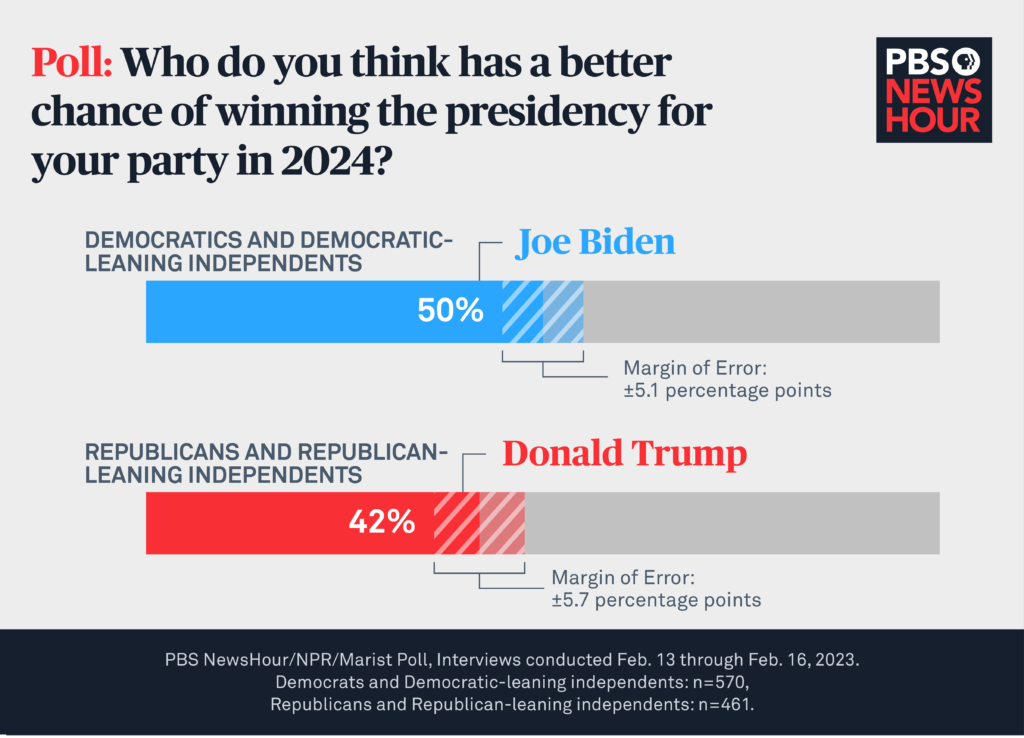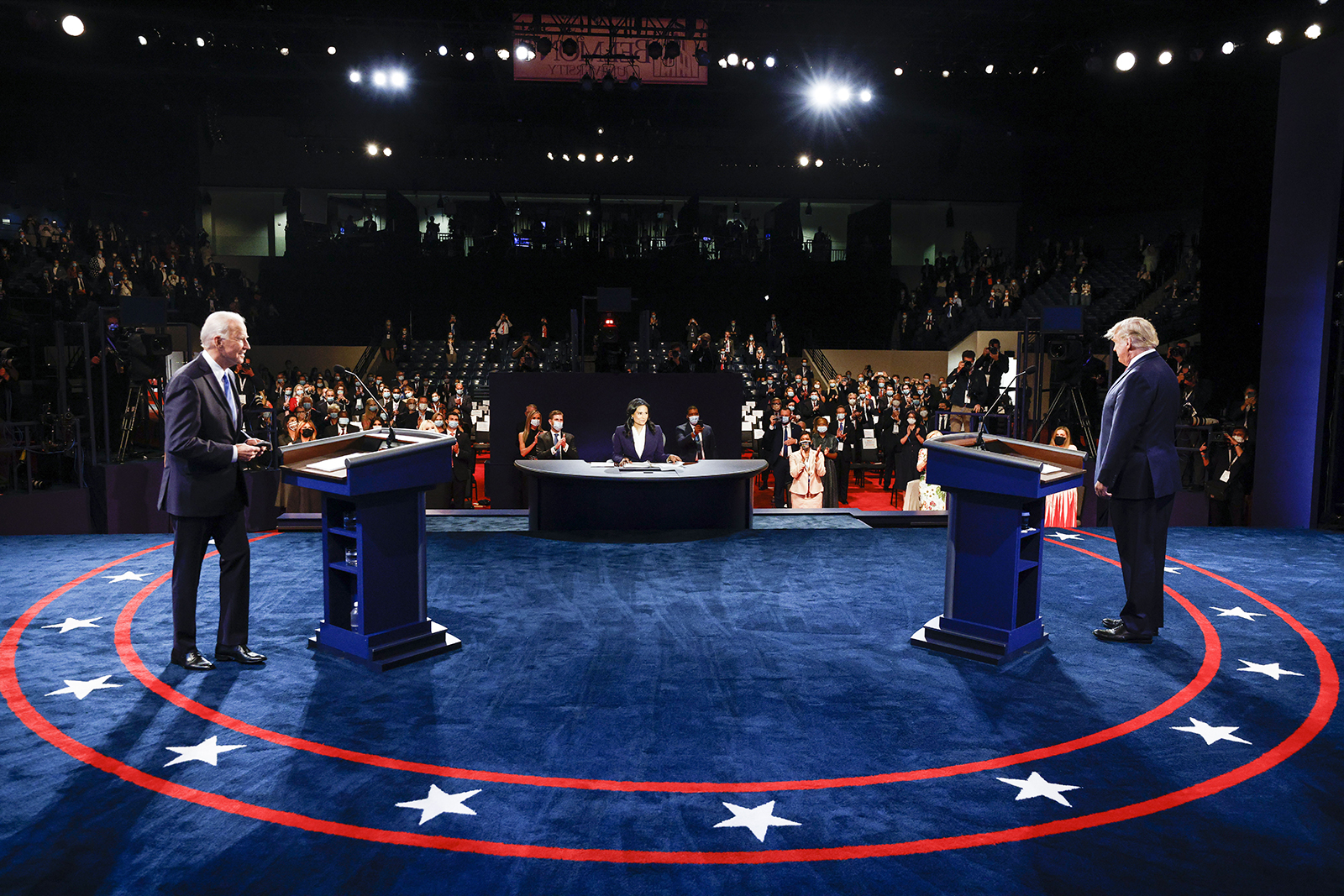Audience Reaction and Perception: Whos Winning In The Presidential Debate

The audience’s reaction to a presidential debate can be a valuable indicator of the candidates’ performance and the public’s perception of their strengths and weaknesses. Analyzing the audience’s body language, facial expressions, and audible responses can provide insights into how the debate is resonating with voters.
Audience Engagement and Reactions
The audience’s engagement and reactions during the debate are crucial in gauging their interest and understanding of the candidates’ positions. A lively audience, with enthusiastic applause and attentive listening, suggests a high level of engagement and interest in the issues being discussed. Conversely, a subdued audience with minimal reaction might indicate a lack of interest or a disconnect between the candidates’ message and the audience’s concerns.
- Applause and Cheers: The frequency and intensity of applause can reflect the audience’s agreement with a candidate’s statements or their excitement about a particular issue. A candidate who consistently receives enthusiastic applause may be perceived as more persuasive or charismatic.
- Laughter and Gasps: Audience reactions like laughter or gasps can indicate surprise, amusement, or even disapproval. These reactions can be revealing, especially when they are directed at a specific candidate or statement. For instance, a candidate who elicits laughter from the audience may be perceived as witty or charming, while a candidate who elicits gasps may be perceived as controversial or even offensive.
- Body Language: The audience’s body language, such as head nodding, eye contact, and posture, can also provide insights into their engagement and receptiveness. For example, an audience that is nodding their heads in agreement with a candidate’s statement is likely to be more receptive to their message. Conversely, an audience that is looking away or appearing bored may be less receptive.
Impact on Candidate Perception, Whos winning in the presidential debate
The audience’s reactions can significantly impact how viewers perceive the candidates. A candidate who is perceived as engaging and persuasive by the audience is more likely to be seen as a strong leader and a credible candidate. Conversely, a candidate who appears to be struggling or making gaffes may be perceived as weak or unprepared.
- Confidence and Charisma: A candidate who exudes confidence and charisma is more likely to connect with the audience and win their support. Audience reactions can amplify this perception, as enthusiastic applause and cheers can reinforce a candidate’s image as a strong and likable leader.
- Preparedness and Knowledge: The audience’s response to a candidate’s answers can reflect their perception of their preparedness and knowledge. A candidate who provides well-informed and thoughtful answers is likely to be seen as knowledgeable and capable. Conversely, a candidate who struggles to answer questions or makes factual errors may be perceived as unprepared or lacking in substance.
- Authenticity and Empathy: The audience’s reaction to a candidate’s personal stories and experiences can indicate their perception of their authenticity and empathy. A candidate who shares personal stories that resonate with the audience is more likely to be seen as genuine and relatable. Conversely, a candidate who appears to be insincere or out of touch may struggle to connect with the audience.
Turning Points and Momentary Shifts
The audience’s reactions can also reveal potential turning points or moments that may have swayed their opinion. For instance, a candidate who delivers a powerful closing statement that resonates with the audience may see a surge in support. Conversely, a candidate who makes a gaffe or makes an offensive remark may see a decline in their favorability.
- Strong Statements and Arguments: A candidate who delivers a strong statement or argument that resonates with the audience may see a shift in their favor. This could be a moment where a candidate successfully addresses a key issue or offers a compelling solution to a problem. The audience’s reaction, such as applause or cheers, can indicate that the candidate has effectively captured their attention and support.
- Gaffes and Controversial Remarks: A candidate who makes a gaffe or makes a controversial remark may see a decline in their favorability. The audience’s reaction, such as gasps or expressions of disapproval, can signal that the candidate has lost credibility or alienated a portion of the audience.
- Personal Stories and Experiences: A candidate who shares a personal story or experience that resonates with the audience may see an increase in their favorability. This could be a moment where the candidate connects with the audience on an emotional level and demonstrates their empathy and understanding. The audience’s reaction, such as nodding in agreement or expressing sympathy, can indicate that the candidate has successfully made a personal connection.
Comparison of Audience Response
Comparing the audience’s response to each candidate’s performance can provide insights into their relative strengths and weaknesses. A candidate who consistently receives enthusiastic applause and cheers may be perceived as more persuasive and charismatic than a candidate who receives a more subdued response. Similarly, a candidate who makes a gaffe or makes an offensive remark may see a decline in their favorability compared to a candidate who avoids such missteps.
- Applause and Cheers: Comparing the frequency and intensity of applause for each candidate can provide a measure of their relative popularity and persuasiveness. A candidate who consistently receives enthusiastic applause may be seen as more likable and more likely to connect with the audience.
- Body Language and Facial Expressions: Observing the audience’s body language and facial expressions in response to each candidate can reveal their relative engagement and receptiveness. For example, an audience that is nodding their heads in agreement with one candidate’s statements but appears bored or disinterested in another candidate’s statements can indicate a difference in their perception of the candidates’ credibility and persuasiveness.
- Audible Reactions: Comparing the audience’s audible reactions, such as laughter, gasps, or murmurs, can provide insights into their relative perception of each candidate’s humor, sincerity, and credibility. For instance, a candidate who elicits laughter from the audience may be perceived as more likable or witty than a candidate who receives a more muted response.
Post-Debate Coverage and Analysis

The aftermath of a presidential debate is a whirlwind of activity, with political pundits, analysts, and the media dissecting every word, gesture, and facial expression. This intense scrutiny aims to understand the impact of the debate on the candidates’ campaigns and the potential implications for the election outcome.
Poll Numbers and Campaign Strategies
Post-debate analysis often focuses on how the event might affect the candidates’ poll numbers. Analysts examine pre- and post-debate polling data to identify any shifts in voter sentiment.
- A debate performance can either reinforce existing opinions or sway undecided voters, potentially altering the race’s dynamics. For example, in the 2020 US presidential debates, some polls indicated a slight bump in support for Joe Biden after the first debate, while Donald Trump seemed to benefit from the second.
- The debate’s impact on campaign strategies is also a key area of focus. Winning or losing a debate can influence a campaign’s messaging and advertising strategies. A candidate who performs well might capitalize on the momentum by emphasizing specific themes or policies. Conversely, a candidate who falters may need to adjust their strategy to address weaknesses exposed during the debate.
Long-Term Implications for the Election Outcome
While a single debate might not determine the outcome of an election, it can significantly impact the race’s trajectory.
- A strong performance can give a candidate a much-needed boost in momentum and media attention. Conversely, a poor performance can lead to negative headlines and a loss of public confidence.
- The debate can also shape the narrative surrounding the candidates and their campaigns. A candidate who delivers a memorable moment or effectively articulates their vision can gain a significant advantage in the race for public opinion.
- Additionally, a debate can provide a platform for highlighting key issues and concerns that may not have received significant attention before. This can influence voters’ priorities and shape the overall election discourse.
Controversies and Talking Points
Post-debate coverage often generates significant controversy and debate. Analysts, pundits, and the media dissect every aspect of the event, focusing on specific moments, exchanges, and statements.
- These controversies can revolve around factual inaccuracies, policy disagreements, personal attacks, or even the candidates’ body language and demeanor.
- These controversies often become talking points in the days and weeks following the debate, influencing public opinion and shaping the narrative surrounding the candidates.
- For example, the 2016 US presidential debates saw significant controversy over Donald Trump’s comments about Hillary Clinton and his refusal to accept the results of the election if he lost. These controversies fueled a national conversation about political civility, the role of the media, and the future of American democracy.
Whos winning in the presidential debate – The presidential debate rages on, a battle of words and policies, but perhaps the real winner is the one who can offer the most compelling vision for the future. And maybe, just maybe, that vision involves a world where tiny houses are the norm, and a stay at a Polly Pocket Airbnb is the ultimate escape from the stress of political discourse.
After all, who needs a grandiose mansion when you can have a cozy, sustainable, and whimsical abode? The debate may be fierce, but the future, it seems, is getting smaller and more fun.
The presidential debate rages on, a battle of words and ideologies. But amidst the political clamor, alex highsmith , a rising star in the NFL, silently makes his own mark on the field. He may not be in the spotlight of the debate, but his dedication and talent speak volumes, reminding us that winning isn’t just about words, but about actions and results.
